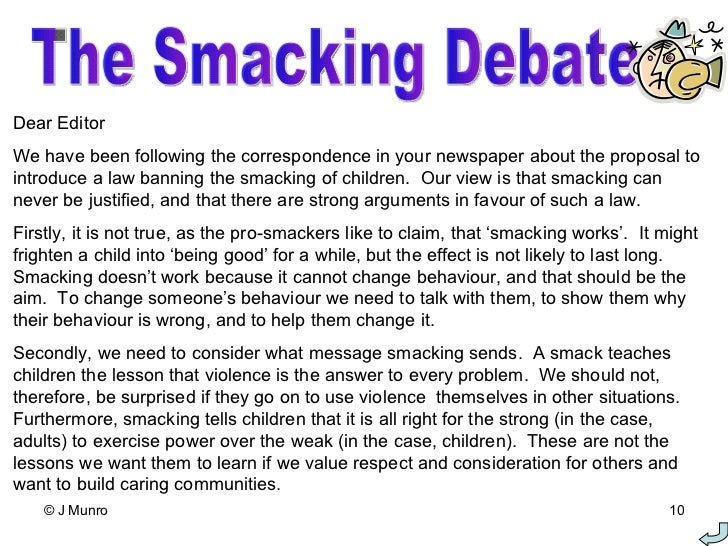Why babies suck their thumb
Why Does Your Child Suck Her Thumb?
If you’re worried about your baby’s thumb-sucking, take heart. Until your little one turns about 5 years old, there isn’t any risk associated with thumb-sucking, so it’s only really closer to then that you might consider helping help her stop the habit, if she hasn’t already. Read on to learn more about why babies and children suck their thumbs, when the behavior typically starts, and how to stop thumb-sucking when the time comes.
Why Do Babies and Children Suck Their Thumbs?
Babies are born with natural rooting and sucking reflexes, which is why some infants will put their thumb or fingers in their mouth and suck.
Thumb-sucking also has a soothing and calming effect for babies and young children. It can help your little one feel secure and comforted, which is why she may pick up the thumb-sucking habit when she needs a little soothing or before bed, for example. So, don’t worry too much about it: It’s perfectly normal for your little one to suck her thumb.
When Do Babies Start Sucking Their Thumb and When Do They Stop?
Thumb-sucking often starts at a very young age. Some babies begin sucking their thumbs and fingers in the womb! And, some newborn babies start sucking their thumbs as soon as they have been born. There are even babies who won’t go on to suck their thumbs.
Once your little one starts, it can easily become a habit, especially as your little one likely finds it so comforting. It's helpful to remember that thumb and finger sucking is a common habit—and that all kids have habits—so you have no need to worry if your baby is sucking her thumb regularly.
Most children grow out of this behavior. In fact, more than half stop when they are 6 or 7 months old. Others stop naturally a little later between the ages of 2 and 4 years old.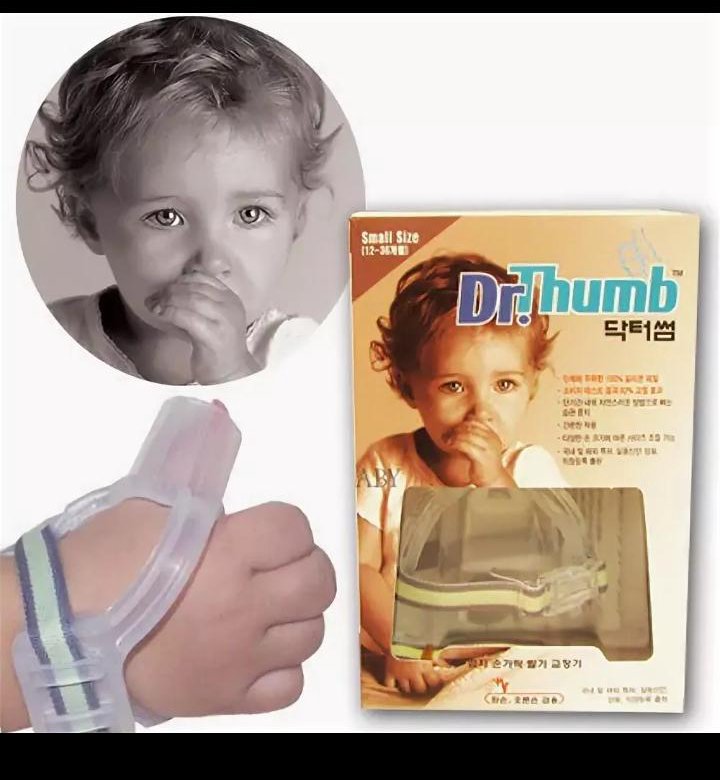
In some cases, perhaps if your little one is feeling extra vulnerable or stressed, she may even suck her thumb on occasion until she’s about 8 years old.
When Should You Try to Help Your Child Stop Thumb-Sucking?
Although thumb-sucking is normal for young children, if it goes on beyond the age of about 5, it can become a concern. This is because once the permanent teeth start coming in, thumb-sucking can affect the shape of the mouth and affect how the teeth line up.
Once your child is about 4 or 5 years old, it may be time to wean him off this habit.
If your little one is still a baby or toddler and you’re worried about how his thumb-sucking may affect the development of his mouth, gums, or baby teeth speak to your little one’s healthcare provider or dentist for personalized guidance.
How to Stop Your Baby’s or Child’s Thumb-Sucking
For a baby, you don’t need to! It’s perfectly OK for your baby to be sucking his thumb. Once your child is nearing 5 years old or is any older and still thumb-sucking, you can work with him to help change the behavior.
Once your child is nearing 5 years old or is any older and still thumb-sucking, you can work with him to help change the behavior.
Keep in mind, it won’t happen overnight and you’ll need to be patient with your little one.
When starting the process, make sure that your child is in a happy place. Stress and emotional problems may make him more resistant to changing the behavior, as thumb-sucking gives him some comfort.
If you know there is something that is causing stress for your child out, try to take care of that before concentrating on trying to break the thumb-sucking habit. For example, if you’re moving to another house or if he’s getting a sibling soon, it may be better to wait for things to settle down.
Here are a few things you can do to help your child stop thumb-sucking:
Offer regular, gentle reminders. Your little one may not realize he is sucking his thumb, so remind him calmly that he is doing it and that it’s not good for him.
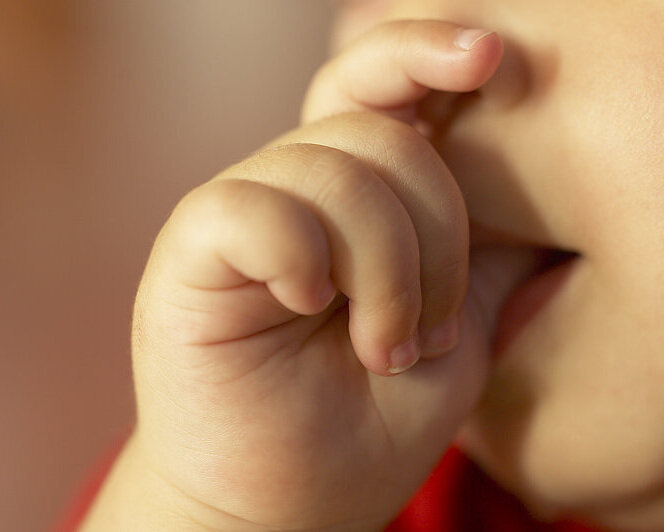 Be kind and reassuring and avoid scolding or criticizing him.
Be kind and reassuring and avoid scolding or criticizing him. Understand the triggers. Is there something that stresses your child and that causes him to suck his thumb? Does he have separation anxiety when you go to work or when you drop him off at kindergarten? Does he do it at a certain time of day or place? If you’re not sure what is causing the stress, talk to him about it and try to avoid the triggers if you can. If your child seeks comfort before going to bed by sucking his thumb, you can take a few measures to help him get a better night’s sleep, such as giving him a bath before bed or reading him a bedtime story.
Use positive reinforcement. Set small goals to encourage him, like no thumb-sucking an hour before bed (and then none after dinner, then not doing it all day, for example). Reward him with encouragement and praise, or a specific reward, each time he goes the full time without thumb-sucking.
Consider aversive measures as a last resort.
 If, after a while, you notice your child is still thumb-sucking, even after trying the above ideas, consult your child's healthcare provider for advice. Your provider may recommend aversive measures, like coating the thumb or finger with a bitter substance, or by using a bandage or thumb guard to discourage your child from sucking.
If, after a while, you notice your child is still thumb-sucking, even after trying the above ideas, consult your child's healthcare provider for advice. Your provider may recommend aversive measures, like coating the thumb or finger with a bitter substance, or by using a bandage or thumb guard to discourage your child from sucking. Talk to your child’s dentist. If your little one can’t break the habit, your child’s dentist can provide a personalized recommendation on what to do to protect your child’s teeth and mouth.
The Bottom Line
Thumb-sucking in babies is not something to worry about. It's a common behavior that provides comfort for many babies and young children. Chances are your little one will stop doing it naturally by about the age of 4, if not earlier.
Even if you notice that your little one is occasionally sucking his thumb after he turns 5, it shouldn’t cause problems for the development of his mouth and teeth.
However, if it’s a regular thing and the habit doesn’t look to be going away when your child reaches about age 5, there are some simple things you can do to help him break the habit. Gentle reminders to stop, positive reinforcement when your child goes long stretches without thumb-sucking, and eliminating or reducing stressors might work well.
Patience and consistency on your part, and help from your child’s healthcare provider or dentist if it’s needed, will help your little one conquer the thumb-sucking habit once and for all.
While you’re here, you may also be interested in reading our guide on dental care for children, including how to brush your little one’s teeth, what to do about common teeth injuries, and more.
How we wrote this article
The information in this article is based on the expert advice found in trusted medical and government sources, such as the American Academy of Pediatrics and the American College of Obstetricians and Gynecologists.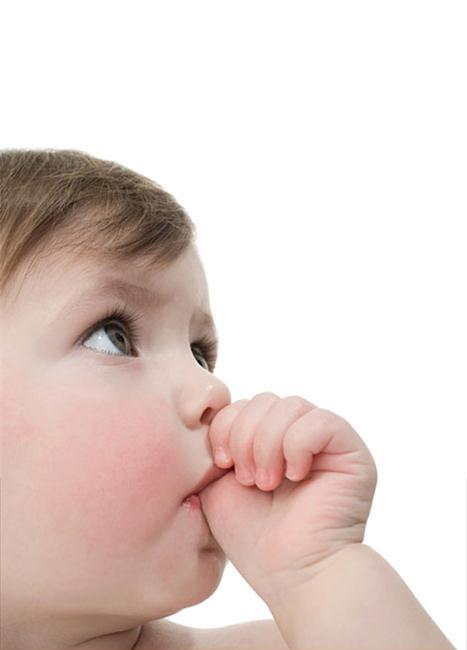 You can find a full list of sources used for this article below. The content on this page should not replace professional medical advice. Always consult medical professionals for full diagnosis and treatment.
You can find a full list of sources used for this article below. The content on this page should not replace professional medical advice. Always consult medical professionals for full diagnosis and treatment.
A Pediatrician's Guide to Thumb-Sucking: What to Know
How Do You Tell If a Baby Is Hungry or Wants Comfort?
By Carisse Armada • 03 Oct, 2022
Firstly, babies don't have many ways to tell what they need. It doesn't matter if the child is hungry, hurt, or lonely and needs comfort; he doesn't know what time is, so all of these things are just as important to him now. So, when your baby needs something, they open their mouth and make the only sound they can communicate with, crying. So, until your child learns other ways to communicate when your baby sucks on their hands or cries, you want to understand their actions to meet their needs better.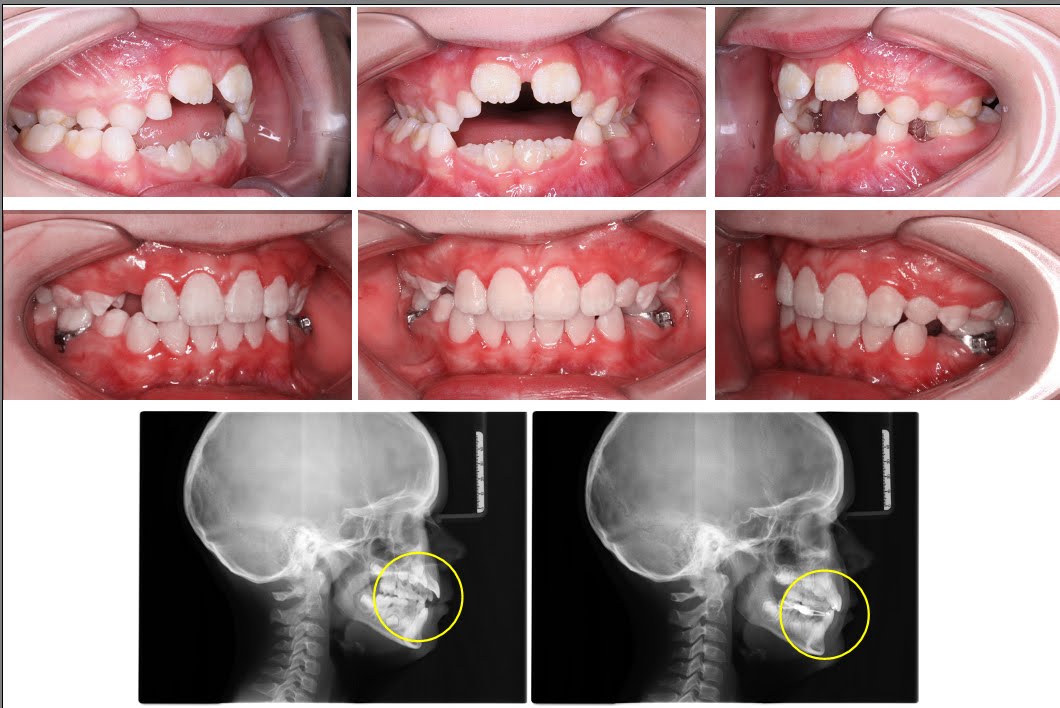 We know that a crying baby prompts the parents to act in ways to display comfort, prepare for feeding, or check the baby's wellbeing. Distinguishing if you have a hungry baby or just a baby that wants you to comfort them can be challenging, especially for new parents. How Do You Tell If a Baby Is Eating or Comfort Nursing? It will be beneficial to learn to differentiate between your baby needing to eat for comfort or hunger. For parents, you never want to feel like you're not meeting your baby's needs, so it's natural to want to nurse or bottle feed them to soothe their cries. Still, there are ways to tell if the baby is actually hungry or wants to suck on the breast nipple or bottle nipple for comfort. Further, your baby will communicate his hunger or need for comfort to you in various ways, from subtly hinting to making immediate demands.
We know that a crying baby prompts the parents to act in ways to display comfort, prepare for feeding, or check the baby's wellbeing. Distinguishing if you have a hungry baby or just a baby that wants you to comfort them can be challenging, especially for new parents. How Do You Tell If a Baby Is Eating or Comfort Nursing? It will be beneficial to learn to differentiate between your baby needing to eat for comfort or hunger. For parents, you never want to feel like you're not meeting your baby's needs, so it's natural to want to nurse or bottle feed them to soothe their cries. Still, there are ways to tell if the baby is actually hungry or wants to suck on the breast nipple or bottle nipple for comfort. Further, your baby will communicate his hunger or need for comfort to you in various ways, from subtly hinting to making immediate demands. Cues That Tell the Baby Is Hungry How do you tell if your baby is hungry? To better illustrate, be mindful of these cues: baby sucking on hand or fists turn their head toward your breast Calm and wide-eyed after a nap Rooting with a strong, nutritive suck Continuous crying after comforting them with cradling, rocking, or a diaper change (this is a late hunger cue) Opens and closes mouth When your baby is hungry, you need to respond to their cues.
Cues That Tell the Baby Is Hungry How do you tell if your baby is hungry? To better illustrate, be mindful of these cues: baby sucking on hand or fists turn their head toward your breast Calm and wide-eyed after a nap Rooting with a strong, nutritive suck Continuous crying after comforting them with cradling, rocking, or a diaper change (this is a late hunger cue) Opens and closes mouth When your baby is hungry, you need to respond to their cues.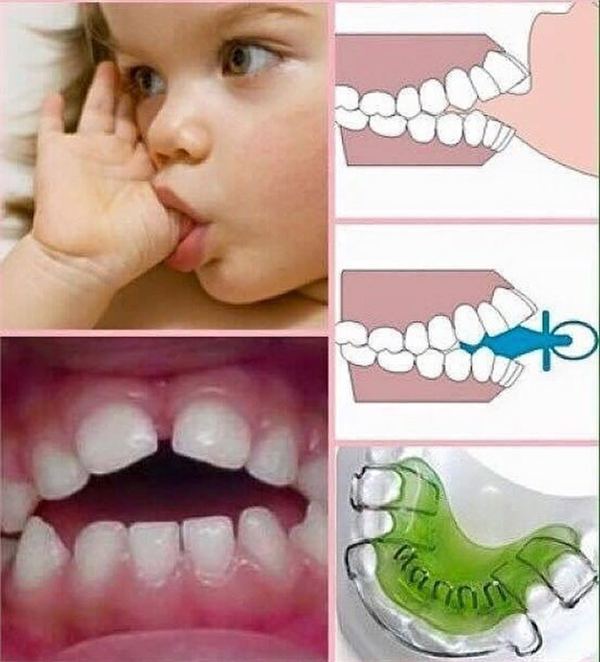 Stretching, becoming more active, and putting their hand to their mouth are all familiar mid cues or signs that tell they are hungry. Babies will make extreme efforts to let you know they are hungry if these mid-cues don't result in a nursing session. They will scream and cry. Babies will move their arms and legs all over the place. Their faces will turn red with frustration. These are signs that it's too late to feed; by this time, the baby is usually too upset to focus on eating. So, you'll have to calm them down as you administer food to them. You can help keep feedings calm and effective as soon as you see signs that your newborn or infant is hungry. It's much easier for a baby to focus on eating enough when they aren't using all their energy to show how they feel. Signs That Your Baby Wants to Nurse for Comfort One method to feed your baby and provide the nutrients they need to thrive is breastfeeding.
Stretching, becoming more active, and putting their hand to their mouth are all familiar mid cues or signs that tell they are hungry. Babies will make extreme efforts to let you know they are hungry if these mid-cues don't result in a nursing session. They will scream and cry. Babies will move their arms and legs all over the place. Their faces will turn red with frustration. These are signs that it's too late to feed; by this time, the baby is usually too upset to focus on eating. So, you'll have to calm them down as you administer food to them. You can help keep feedings calm and effective as soon as you see signs that your newborn or infant is hungry. It's much easier for a baby to focus on eating enough when they aren't using all their energy to show how they feel. Signs That Your Baby Wants to Nurse for Comfort One method to feed your baby and provide the nutrients they need to thrive is breastfeeding. Still, frequently, the breastfeeding relationship goes beyond serving as a mealtime. Nursing can be a ritual that feels calming and safe to babies. The special connection between the mother and child soothes the baby and mother by the release of oxytocin also known as the “love hormone”. Of course, babies sometimes just want to feel as close to their parents and won't reach for the breast because they are hungry. This is frequently referred to as comfort nursing or breastfeeding for comfort. You can easily get into this habit, especially if you aren't sure if your baby is eating or just nursing or if you just want to comfort your baby quickly. Your baby is only nursing for comfort nursing when you see these signs: Flutter sucking, slowing down, stop sucking, or making little sucks.
Still, frequently, the breastfeeding relationship goes beyond serving as a mealtime. Nursing can be a ritual that feels calming and safe to babies. The special connection between the mother and child soothes the baby and mother by the release of oxytocin also known as the “love hormone”. Of course, babies sometimes just want to feel as close to their parents and won't reach for the breast because they are hungry. This is frequently referred to as comfort nursing or breastfeeding for comfort. You can easily get into this habit, especially if you aren't sure if your baby is eating or just nursing or if you just want to comfort your baby quickly. Your baby is only nursing for comfort nursing when you see these signs: Flutter sucking, slowing down, stop sucking, or making little sucks. Still and looking into space while nursing Holding the nipple in their mouth but not sucking for milk Rooting and sucking lightly at the breast Arching and grabbing ears At the end of a wake window, sucking hands or fists Eyebrows arched/eyes rubbed Crying could mean that they're too tired. Other Ways to Satisfy Babies Who Only Want Comfort If you think your infant or newborn is just nursing for comfort, there are other ways to make them feel better.
Still and looking into space while nursing Holding the nipple in their mouth but not sucking for milk Rooting and sucking lightly at the breast Arching and grabbing ears At the end of a wake window, sucking hands or fists Eyebrows arched/eyes rubbed Crying could mean that they're too tired. Other Ways to Satisfy Babies Who Only Want Comfort If you think your infant or newborn is just nursing for comfort, there are other ways to make them feel better.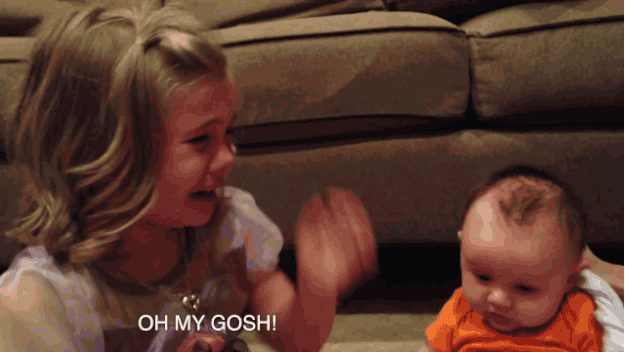 Swaddling is a way to hold a baby that feels like nursing. If your baby wants to chew, give them a pacifier. Making them rock Cuddling the baby Nonetheless, if you're worried they'll stop breastfeeding because they use a pacifier, a study found no indication that this is the case. In fact, pacifiers are linked to reduction in Sudden Infant Death Syndrome (SIDS) Try different things, and you'll find out what your baby likes best. How to Know When Your Baby Is Full When some parents ignore a baby's hunger cues because they think the baby is just looking for comfort.
Swaddling is a way to hold a baby that feels like nursing. If your baby wants to chew, give them a pacifier. Making them rock Cuddling the baby Nonetheless, if you're worried they'll stop breastfeeding because they use a pacifier, a study found no indication that this is the case. In fact, pacifiers are linked to reduction in Sudden Infant Death Syndrome (SIDS) Try different things, and you'll find out what your baby likes best. How to Know When Your Baby Is Full When some parents ignore a baby's hunger cues because they think the baby is just looking for comfort. The little one might not get the needed milk! Learning the signs if your newborn is fully fed is to know if you are nursing a hungry baby or one that only needs to feel better. It's important to let your baby nurse until they are completely fed. You should be aware of these signs that say they are already full: The baby lets go of your breast or "falls off." The baby moves away from your mouth. The baby lets its body loosen up and opens its hands. Further, if your baby finishes eating from one breast and seems full, burp your baby and change their diaper (if needed), then offer the other breast.
The little one might not get the needed milk! Learning the signs if your newborn is fully fed is to know if you are nursing a hungry baby or one that only needs to feel better. It's important to let your baby nurse until they are completely fed. You should be aware of these signs that say they are already full: The baby lets go of your breast or "falls off." The baby moves away from your mouth. The baby lets its body loosen up and opens its hands. Further, if your baby finishes eating from one breast and seems full, burp your baby and change their diaper (if needed), then offer the other breast.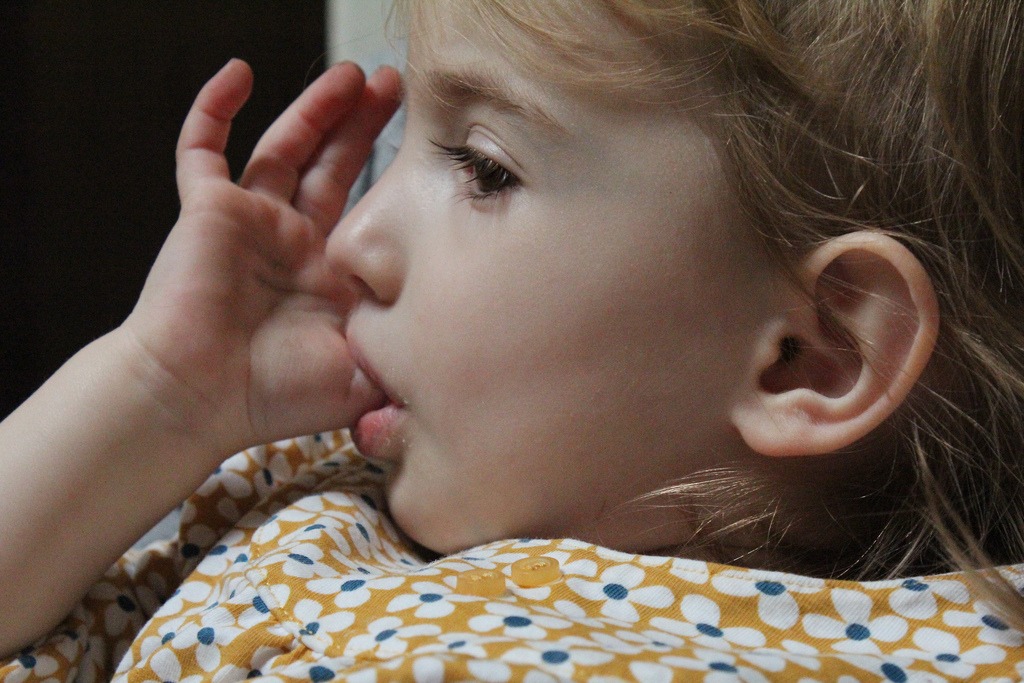 If your baby doesn't seem interested or doesn't want to latch on, he may not be hungry anymore. Some babies may eat from both sides at each feeding, while others may only feed from one side. Seek your Pediatrician's advice Get in touch with Sang Pediatrics right away to obtain additional parenting tips on effective ways to care for your baby. You can also subscribe to our blog . We provide the best pediatric care in Fresno, California . Contact us at (559) 268-1737 or make an appointment online.
If your baby doesn't seem interested or doesn't want to latch on, he may not be hungry anymore. Some babies may eat from both sides at each feeding, while others may only feed from one side. Seek your Pediatrician's advice Get in touch with Sang Pediatrics right away to obtain additional parenting tips on effective ways to care for your baby. You can also subscribe to our blog . We provide the best pediatric care in Fresno, California . Contact us at (559) 268-1737 or make an appointment online.
Reasons why a child sucks his thumb
From the moment a child is born until the time when he becomes an adult, the life of his parents is a continuous series of exciting happy events and experiences. They first deal with an adorable baby who mostly sleeps and eats. But the baby is growing, and he has certain features. One of the most common childhood habits is perhaps the most incomprehensible to moms and dads: almost all babies suck their thumbs. Why? Let's figure it out. nine0003
Causes of the thumb sucking habit
According to the information provided on the NEN Parent Community website, thumb sucking is an absolutely natural action for a baby. Until a certain age, sucking movements are directly associated with the process of breastfeeding or bottle feeding. By making such movements, the child shows that he is hungry. When a baby begins to explore the world around him, sucking his thumb makes him feel safe. In toddlers, some babies continue to suck on their thumb to calm down or fall asleep faster. nine0003
nine0003
Impact of thumb sucking on tooth development
The main concern of parents is whether this habit will continue in the child when permanent teeth begin to appear. Thumb sucking can affect a baby's oral development, tooth alignment, and palate formation. However, everything here depends mainly on how actively and often the child sucks his thumb. If the baby just sometimes holds his finger in his mouth, the likelihood of dental problems is much lower than if the child constantly sucks his finger intensively, with considerable effort. nine0003
Should I be worried?
Dentists advise parents to listen to the sound that occurs when the baby takes his finger out of his mouth. Specific cotton indicates that the child sucks his thumb too intensively. You hear a similar but quieter sound when you take a pacifier out of your baby's mouth. It should be noted that pacifier sucking can have the same effects as thumb sucking, but to a lesser extent, as pacifier babies tend to suck less aggressively.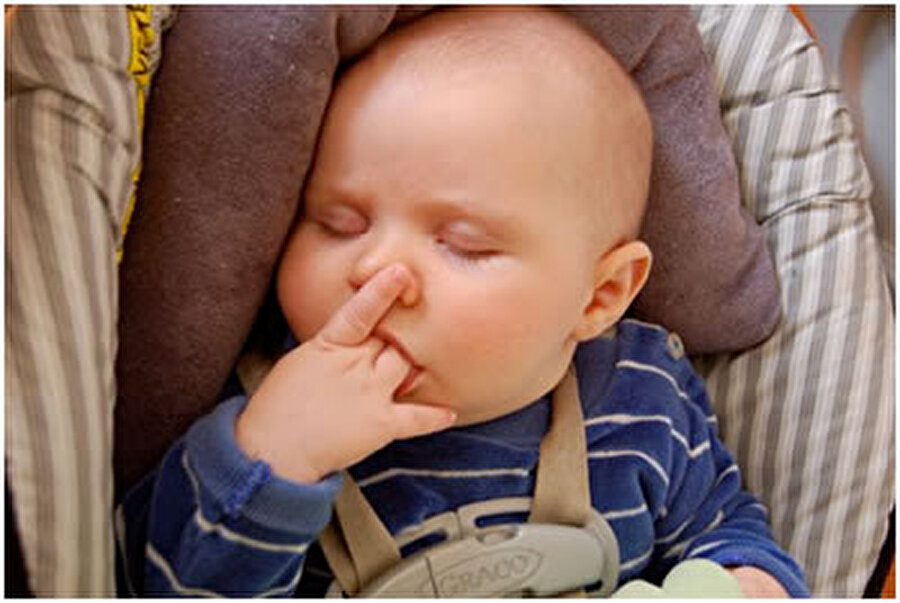 Many children themselves give up the habit of sucking their thumbs between the ages of two and four. nine0003
Many children themselves give up the habit of sucking their thumbs between the ages of two and four. nine0003
How to wean a child from sucking his thumb
If the child continues to suck his thumb, do not rush to start an uncompromising struggle with this habit. The less categorical your prohibitions are, the easier it will be for the baby to give up this activity, and the problem will disappear by itself. If it doesn't, try the following:
- Ask your dentist for information on all oral health issues. nine0029 Start encouraging your child to stop thumb sucking. Showing approval from the parents will be a positive incentive for the baby. Children love to be praised.
- Try to identify the reasons for the persistence of the habit as early as possible. As you already know, some children suck their thumb when they are stressed. Watch your child to understand why he starts to suck his thumb, and then talk to him and eliminate the problem that makes him worried and nervous.
 nine0030
nine0030
Many new parents wonder why their children suck their thumbs. You can not worry - this is a completely natural, reflex need, which most often disappears by itself over time. Focus your efforts on caring for your child's teeth as soon as they appear. Use the right baby toothpaste to keep your little one's teeth strong and healthy, no matter how difficult the process of teething and growth is.
The child sucks his thumb, what to do about it? nine0006
After all, many experts warn that a seemingly harmless childhood habit is followed by a chain of unpleasant consequences, such as: malocclusion, infection of the gums, destruction of the enamel on the nail plate, etc.
Parents, realizing what serious consequences this is fraught with, try to wean their children from this pernicious habit at all costs....
birth, it can begin to manifest itself from the age of three months, when the baby's need for sucking is very pronounced, and he can already control his own movements so much that he can put his finger in his mouth. If the development of the child is successful, then by the year all this will pass. nine0003
If the development of the child is successful, then by the year all this will pass. nine0003
Children can suck not only their thumb, but also other objects. Usually these are the same items. Taking them out of sight, as in the case of sucking a pacifier, you can cause a substitution reaction - the child will simply switch to another thing. Simultaneously with thumb sucking, many babies make some other compulsive movements, for example, you can watch them stroking their ears, picking their nose, licking their lips, or sniffing. Habits of this kind help the child calm down, distract from fears, occupy himself in the absence of attention from parents, their affection and communication. nine0003
Very often, such movements are fixed in the baby as a conditioned reflex. For example, a runny nose that repeats several times a year turns into a habit of sniffing, and drying and cracking lips - to their involuntary licking.
Causes of habit formation.
1.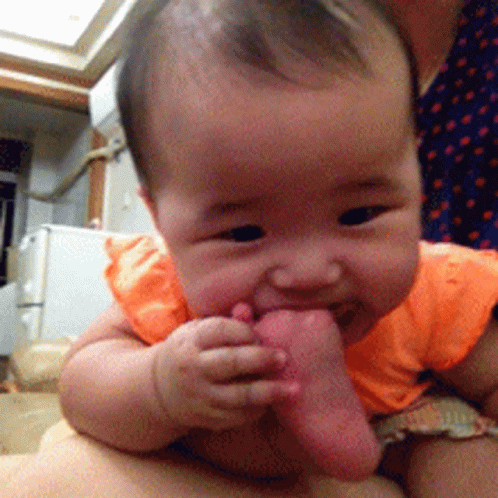 Psychological reasons. If the habit of sucking a finger or other objects does not disappear in the right period, being transferred from early childhood to preschool, or, having disappeared, reappears after three years, this is a signal that the child has mental discomfort. Finger sucking indicates that something is bothering the baby, he is not doing well, and he cannot cope with it on his own. The extreme case is "falling into infancy", i.e. he may partially lose acquired skills, speech becomes more childish. This phenomenon indicates a clear trouble, that the child's psyche suffers. nine0003
Psychological reasons. If the habit of sucking a finger or other objects does not disappear in the right period, being transferred from early childhood to preschool, or, having disappeared, reappears after three years, this is a signal that the child has mental discomfort. Finger sucking indicates that something is bothering the baby, he is not doing well, and he cannot cope with it on his own. The extreme case is "falling into infancy", i.e. he may partially lose acquired skills, speech becomes more childish. This phenomenon indicates a clear trouble, that the child's psyche suffers. nine0003
The main reasons for the appearance of an obsessive habit: quarrels of parents, constant conflicts, divorce and, as a result, leaving the baby to himself. The lack of children's communication and toys, the severity of parents, constant prohibitions and requirements to behave perfectly can also cause thumb sucking.
2. Residual sucking reflex. The sucking reflex and its important role in the development of the infant was discussed in detail in another of our articles (note "Types of Bad Habits - Pacifier Sucking.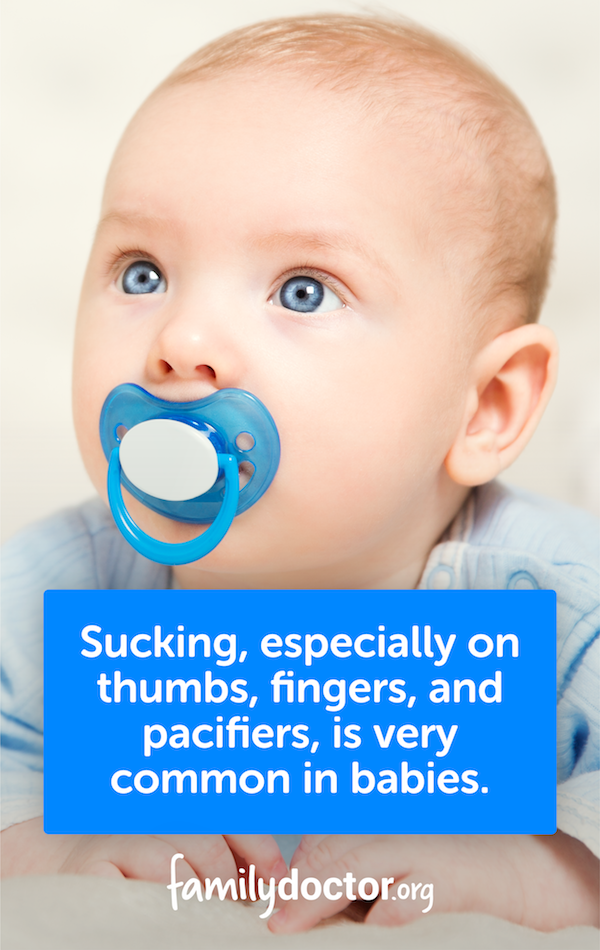 "), since finger sucking may have a similar cause as pacifier sucking. An unsatisfied sucking reflex, when the mother does not breastfeed the baby enough and at the same time does not give a pacifier, can be expressed in the fact that the child begins to put fingers, toys, corners of a pillow or blanket into her mouth. nine0003
"), since finger sucking may have a similar cause as pacifier sucking. An unsatisfied sucking reflex, when the mother does not breastfeed the baby enough and at the same time does not give a pacifier, can be expressed in the fact that the child begins to put fingers, toys, corners of a pillow or blanket into her mouth. nine0003
3. Hunger . The reason for sucking fingers can also be feeding the child "by the clock" and the hunger that he may experience in between. This habit from physiological can become permanent, obsessive, if you do not change the child's diet. Thumb sucking is never seen in children who are kept by their mothers at the breast for as long as the baby wants.
4. Teething. Teething becomes a completely natural physiological cause of sucking fingers or other objects in children after six months. The gums begin to itch, teeth form, and the child can begin to eliminate the source of anxiety in this way. But do not allow the baby to pull fingers or foreign objects into his mouth.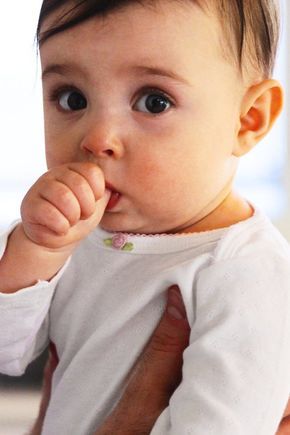 nine0003
nine0003
5. Medical reasons. As in the case of constant pacifier sucking, thumb sucking may indicate a weakened state of health, constant colds, the presence of helminthic invasions or neuropathies in the baby, as well as intestinal infections.
Physical and psychological ways to fight the habit
Among the psychological reasons for sucking a thumb or other objects, the most basic is the lack of love from parents, especially mothers. Children feel even a veiled hostility and dissatisfaction with them, as a result of which the understanding comes to them that they are unloved and unwanted children. And this understanding becomes a trigger mechanism that provokes the appearance of a harmful compensatory habit in a child. He unwittingly finds a worthy sedative, which is thumb sucking, for example. By the way, there is an opinion among doctors that sucking a finger with a fetus even before birth indicates an unfavorable course of pregnancy in the mother (anxiety, neurosis, pain).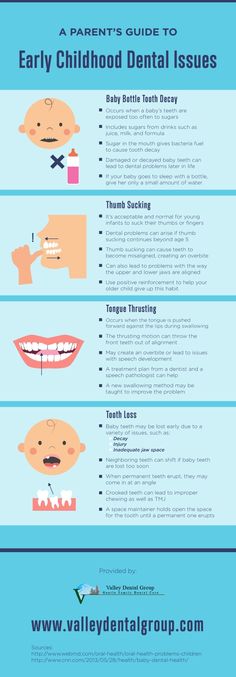 If you look closely at the baby at the moment when he sucks his finger, you can see in action a compensatory mechanism that allows the child to cope with psychological discomfort - while sucking a finger or other object, he seems to forget, covering his eyes, disconnecting from the outside world, maybe even smack with pleasure. For such children, thumb sucking compensates for the lack of attention, reducing their loneliness and inseparability of feelings. nine0003
If you look closely at the baby at the moment when he sucks his finger, you can see in action a compensatory mechanism that allows the child to cope with psychological discomfort - while sucking a finger or other object, he seems to forget, covering his eyes, disconnecting from the outside world, maybe even smack with pleasure. For such children, thumb sucking compensates for the lack of attention, reducing their loneliness and inseparability of feelings. nine0003
The only way to get out of this situation is to increase the amount of positive attention paid by parents to the child, caress and warmth when communicating with him. Thus, the baby will not feel unwanted and unloved. The same should be done if parents have communication problems. Quarrels, conflicts, scandals of adults with a child are fertile ground for the appearance of obsessive habits and subsequent neuroses in him. A child who witnesses this behavior may feel guilty about what is happening to his parents. In addition, children are much more charged with the emotions reigning around than adults, and therefore they experience each scandal much more acutely.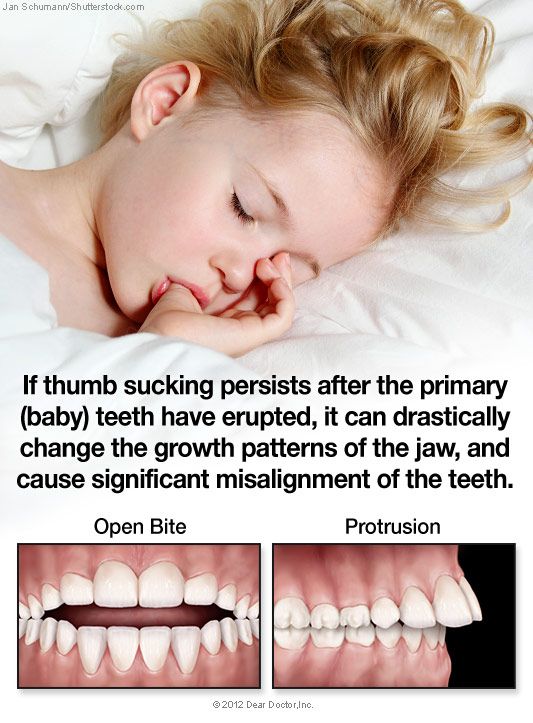 And for relaxation, they will use what they can - bad habits. nine0003
And for relaxation, they will use what they can - bad habits. nine0003
The main advice for parents whose baby has begun to suck a thumb is not to force the fingers out of the mouth. If the child is breastfed, it is better to extend the feeding to 30-40 minutes so that he can satisfy the sucking reflex and be with his mother. Usually the baby manages to drink all the milk from the mother's breast in 10 minutes, the remaining time he just enjoys being next to her, in safety and straining the milk drop by drop. Thus, by stretching the feeding, you can avoid the fact that the child pulls the handle into his mouth. nine0003
With artificial feeding, this method of increasing the feeding time also pays off. Usually, when bottle-feeding, the baby drinks everything in the same 10 minutes. But the nipple wears out over time, and the baby grows and becomes stronger, because of this, feeding time may decrease. Therefore, in order to stretch the feeding time, you need to change the nipples, make sure that the hole in it is small. Then the child will have to work hard to drink milk, thereby satisfying his sucking reflex. nine0003
Then the child will have to work hard to drink milk, thereby satisfying his sucking reflex. nine0003
In addition, the number of feedings and their time should not be reduced if the baby has been observed to be thumb sucking. You can distract him by holding him. A child at this age looks very carefully at the face of the mother, so you can support him in your arms for a longer time. If the baby cannot fall asleep without a finger or a pacifier in his mouth, it is necessary that the mother sit next to the bed, talk calmly with the child before going to bed, hold his hands for a while so that he cannot put his fingers in his mouth, calm down and fall asleep. nine0003
The older the child, the more difficult it is to wean him from sucking his thumb. Along with increased tender attention, one should try to instill confidence in the child in his own strength, placing on him small duties that he is able to cope with under the guidance of his parents. In preschool children, the habit of sucking or chewing something may be associated with increased anxiety and a state of fear.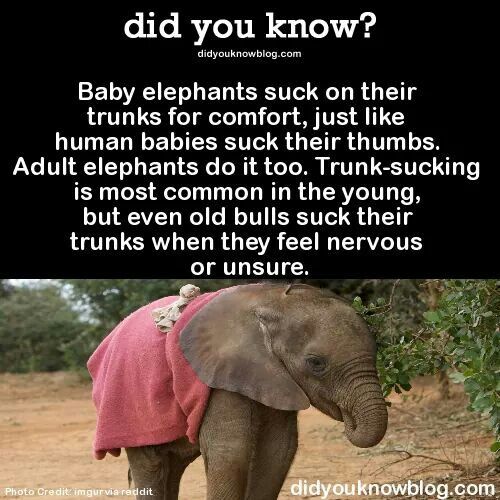 Therefore, first of all, parents need to find out the cause of nervous discomfort in the child and eliminate it. For example, child psychologist Milton Erickson helped a six-year-old kid cope with thumb sucking and nail biting in this way: he told the child's parents in his presence that not all parents understand what babies need. That every kid at the age of 6 should suck his finger and bite his nails, and that he can and even needs to suck his finger and bite his nails for his own pleasure, as all youngsters wish. But when he becomes a big adult boy of 7 years old, then sucking his thumb and biting his nails will already be awkward for him, not that age. Thus, having inspired the boy with self-confidence, the psychologist saved him from this habit, since the boy waited for his seventh birthday (which came after 2 months, he gave up this habit.
Therefore, first of all, parents need to find out the cause of nervous discomfort in the child and eliminate it. For example, child psychologist Milton Erickson helped a six-year-old kid cope with thumb sucking and nail biting in this way: he told the child's parents in his presence that not all parents understand what babies need. That every kid at the age of 6 should suck his finger and bite his nails, and that he can and even needs to suck his finger and bite his nails for his own pleasure, as all youngsters wish. But when he becomes a big adult boy of 7 years old, then sucking his thumb and biting his nails will already be awkward for him, not that age. Thus, having inspired the boy with self-confidence, the psychologist saved him from this habit, since the boy waited for his seventh birthday (which came after 2 months, he gave up this habit.
Everyone knows such a feature of babies as a tendency to imitate adults. Seeing that mom paints her nails, almost all children, even boys, ask to paint them too. Having shown a creative approach to the issue, you can come up with a game for the child in the “hairdresser's”, but with one condition that the nails of the little “visitor” should remain beautiful and well-groomed until his next visit to the “hairdresser's”. In this way, you can influence the baby's habit of pulling boys into his mouth.
Having shown a creative approach to the issue, you can come up with a game for the child in the “hairdresser's”, but with one condition that the nails of the little “visitor” should remain beautiful and well-groomed until his next visit to the “hairdresser's”. In this way, you can influence the baby's habit of pulling boys into his mouth.
Physically, it is possible to influence the habit of sucking a child's finger, which is just beginning, in several ways. For example, if the baby has no allergies, put fluffy mittens on his hands. Having tried to chew suddenly hairy fingers, the child will stop pulling them into his mouth after a while. In addition, you can make cardboard tubes 10-15 cm long, which can be put on the baby's elbows. They will prevent the arms from bending, and after a few sessions, the child will also stop putting his finger in his mouth. nine0003
If the cause of thumb sucking is hunger, therefore, the child's diet should be reviewed so that during breaks he does not put his fingers in his mouth. In addition, sometimes the cause of thumb sucking is the problem of a sunken nipple, due to which the baby cannot eat normally, and, as a result, swallows air, burps, and is naughty. And then he calms down by sucking his thumb. To prevent this situation and combat sticky nipples, you need to equalize the pressure inside the bottle and outside it. To do this, in the upper wide part of the nipple, you need to make a hole where a clean, narrow cocktail tube is inserted. Each time you will need to use a new clean straw. This method will allow the baby to suck out milk without swallowing air or spitting up. The sucking reflex will thus be satisfied, and the fingers will no longer attract the child. nine0003
In addition, sometimes the cause of thumb sucking is the problem of a sunken nipple, due to which the baby cannot eat normally, and, as a result, swallows air, burps, and is naughty. And then he calms down by sucking his thumb. To prevent this situation and combat sticky nipples, you need to equalize the pressure inside the bottle and outside it. To do this, in the upper wide part of the nipple, you need to make a hole where a clean, narrow cocktail tube is inserted. Each time you will need to use a new clean straw. This method will allow the baby to suck out milk without swallowing air or spitting up. The sucking reflex will thus be satisfied, and the fingers will no longer attract the child. nine0003
In addition to thumb sucking, children develop the habit of holding their fingers in their mouths. The mechanism of this sucking habit is somewhat different from that of pacifier or finger sucking, but does not stand out in a separate category. This habit is very stable, it can haunt a person all his life, manifesting itself in stressful periods of his life in a mild form - a person can simply keep part of his finger in his mouth, focusing on some thought and not thinking about external behavior.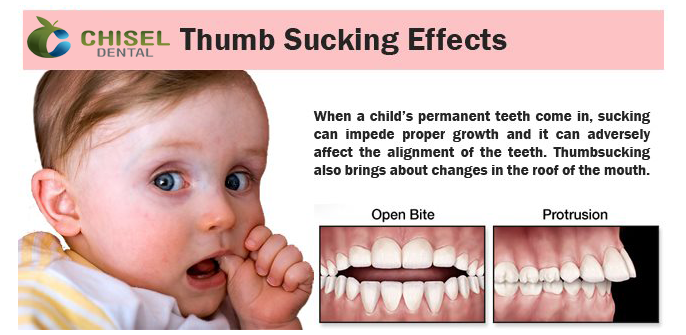
The reason for this habit is internal discomfort, which can provoke any stimulus. Children in this way can express their protest against the inattention of their parents, the fact that they are left alone for a long time. Or they are tormented by an unsolvable question for children's consciousness. nine0003
The best cure for this habit is the attention of adults. Talk to your baby before bed. Calm and gentle communication from day to day will help relieve tension in the child, he will become calmer and will not be so excitable in the evening before bedtime.
In addition, children may keep their fingers in their mouths out of boredom. And in this case, the child needs to be occupied with something interesting, distracted, given an entertaining task. For example, buy a clay whistle and talk about the traditions of Ancient Rus', about a holiday called Whistle, when children and adults devoted several spring days to what they made, decorated with ribbons and gave clay whistles to each other and whistled in them.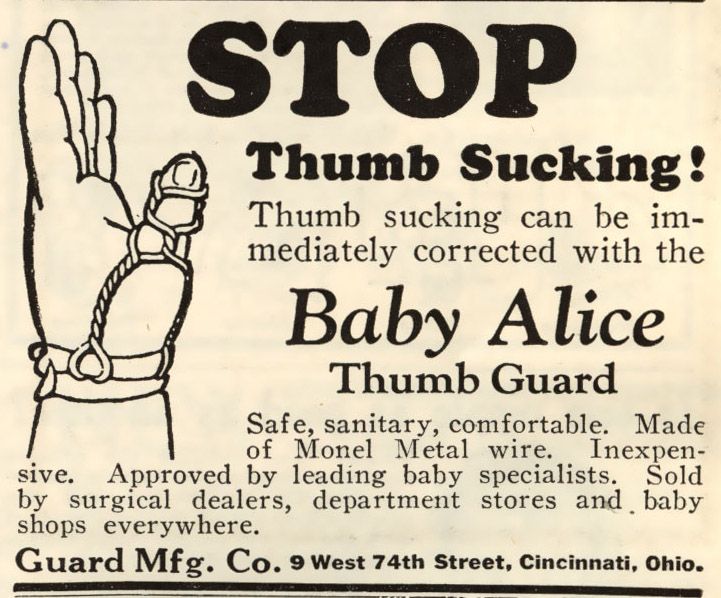 nine0003
nine0003
A child can also be influenced verbally. For example, before a long separation (kindergarten), you can kiss all the fingers of the child and ask him to keep the whole kiss. Of course, it needs to be clarified that washing hands before eating will not wash away kisses.
The habit of holding a finger in the mouth can also be an indication of the baby's jealousy of a brother or sister. The child may be dissatisfied with this, try to attract increased attention to himself to make sure that the parents still love him. Therefore, he can curl up, keep his finger in his mouth, pretending that he is still very small and very much in need of them. In such a situation, the child must be treated with understanding, to convince him that he is still loved, and the youngest child is not his competitor in the struggle for parental attention. nine0003
If a child holds his finger in his mouth before falling asleep, it means that he is tense, excited, trying to cope with his condition.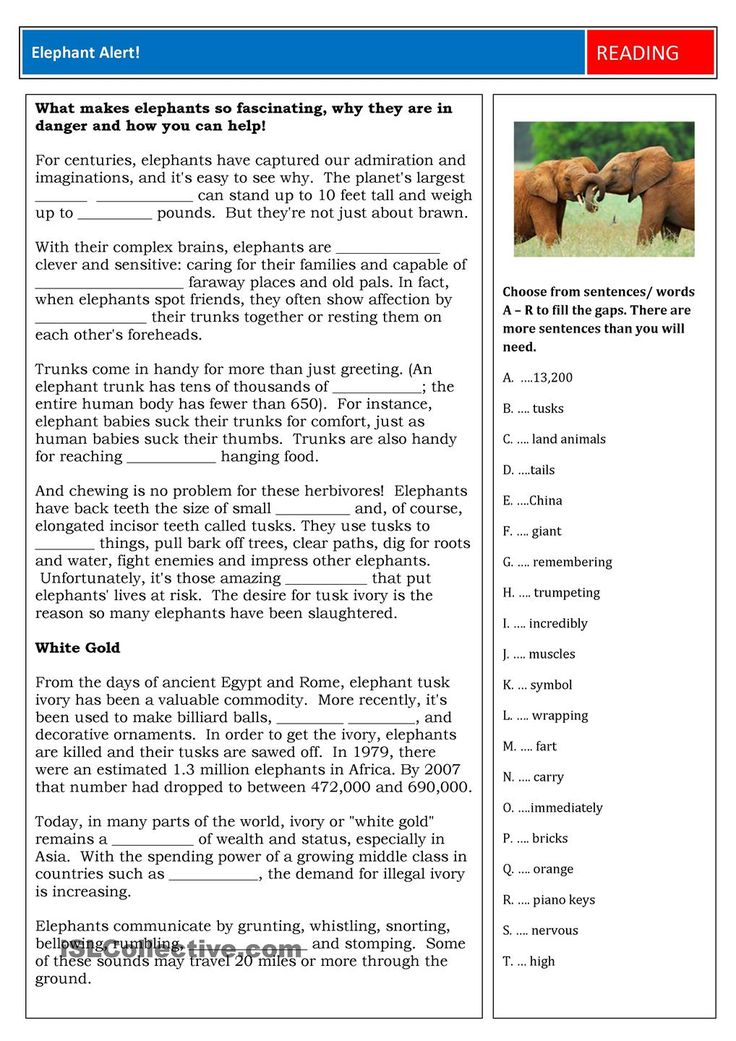 To get rid of this habit, parents must put him to bed, tell a good story that will not excite the baby with colorful details, but, on the contrary, will calm him down. If the child is not self-confident, then you can praise him, tell him what good things he did that day, while gently holding his hand so that he does not pull it into his mouth. Such gentle constant parental care will certainly give results, and the tension will release the child after a while. nine0003
To get rid of this habit, parents must put him to bed, tell a good story that will not excite the baby with colorful details, but, on the contrary, will calm him down. If the child is not self-confident, then you can praise him, tell him what good things he did that day, while gently holding his hand so that he does not pull it into his mouth. Such gentle constant parental care will certainly give results, and the tension will release the child after a while. nine0003
The material was prepared according to: Yu.V. Potapova, M.P. Shatalin Crises of childhood: obsessive habits in children.
More useful information and tips on raising a child you can find on our website.
Materials provided by the First Family Club "Abahaba".
Abahaba is a family club where children and parents have fun and enjoy their time. Creativity, communication, exciting activities and family weekends, here everyone will find what he likes. We offer ample opportunities for the development and education of children, the smallest crumbs can attend early development programs, and older children can attend developmental classes and creative studios. Each meeting is an opportunity to express yourself, reveal your abilities and enrich your inner world, and a pleasant atmosphere and professional teachers will make your stay in the club bright and unforgettable. nine0003
Each meeting is an opportunity to express yourself, reveal your abilities and enrich your inner world, and a pleasant atmosphere and professional teachers will make your stay in the club bright and unforgettable. nine0003
Age category of the site 18+
The online publication (website) is registered by Roskomnadzor, certificate El No. FS77-80505 dated March 15, 2021.
I.O. EDITOR-IN-CHIEF OF THE SITE - KANSKY VICTOR FYODOROVICH.
THE AUTHOR OF THE MODERN VERSION OF THE EDITION IS SUNGORKIN VLADIMIR NIKOLAEVICH.
Messages and comments from site readers are posted without preliminary editing. The editors reserve the right to remove them from the site or edit them if the specified messages and comments are an abuse of freedom mass media or violation of other requirements of the law. nine0003
ADDRESS OF THE EDITORIAL OFFICE: Center Media LLC, Omsk, st. Zhukova, 78, 2nd floor (entrance from Mayakovskogo street) ZIP CODE 644010 Contact tel.








